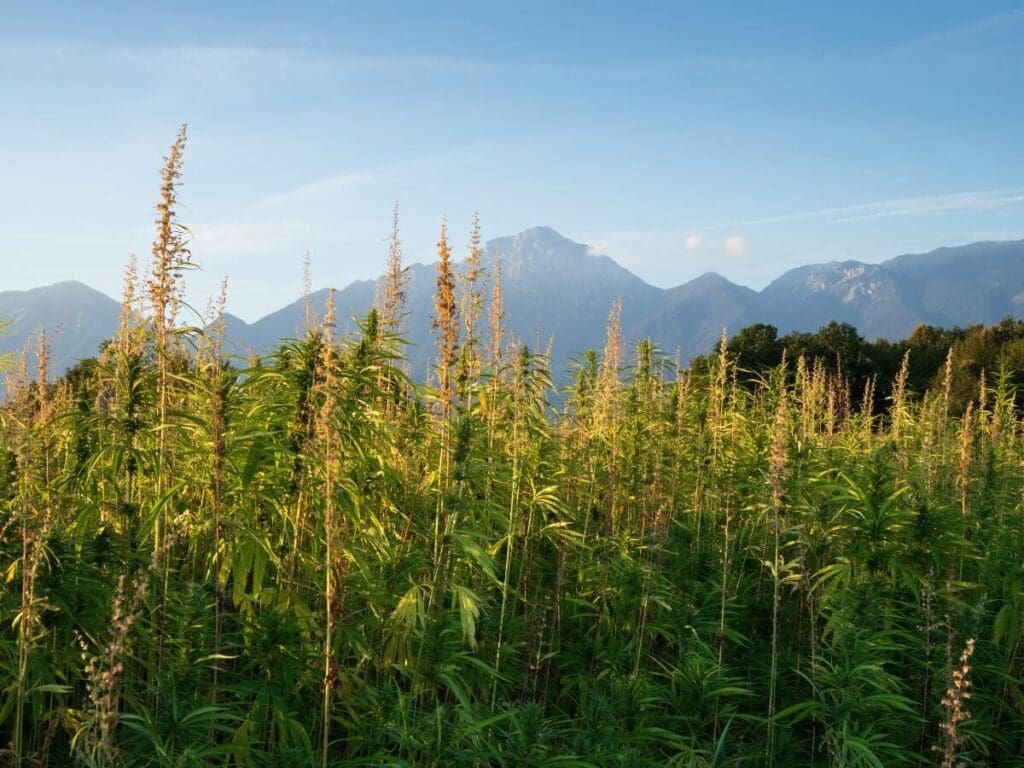Key Takeaways:
- Delta 8 is Illegal in Arizona: Despite federal legalization of hemp-derived products, Arizona classifies Delta 8 as a controlled substance.
- Arizona’s Strict THC Laws: Arizona treats Delta 8 similarly to Delta 9 THC, meaning possession or sale can result in criminal charges.
- Future Legal Changes Are Uncertain: While Arizona may reconsider Delta 8 laws in the future, current regulations remain strict.
Is Delta 8 THC the legal loophole you’ve been waiting for in Arizona, or is it just as restricted as its better-known cousin, Delta 9 THC? The growing popularity of Delta 8, thanks to its milder effects, has many people asking questions about its legal status—especially in states like Arizona, where cannabis laws can be strict and sometimes confusing.
At Happy Hemp, we pride ourselves on being industry leaders in hemp-derived cannabinoids, including Delta 8 THC. With years of experience producing high-quality, rigorously tested Delta 8 products, we have a deep understanding of the developing hemp laws across the U.S. Our commitment to compliance and transparency sets us apart, giving us the authority to guide you through the complexities of Delta 8 legality in Arizona and beyond.
In this article, we’ll break down the legal status of Delta 8 in Arizona, answer your most pressing questions, and give you the knowledge you need to make informed decisions.
Understanding Delta 8 THC
Delta-8-tetrahydrocannabinol, also known as Delta 8, is a cannabinoid that occurs naturally in both hemp and cannabis plants. It is chemically similar to Delta-9-tetrahydrocannabinol (Delta 9), which is the main compound responsible for the psychoactive effects of marijuana, but it has some important differences. Since it is present in small quantities in hemp, most Delta 8 products are created by converting CBD into Delta 8. This conversion process has raised legal questions, particularly regarding whether Delta 8 should be considered a legal hemp derivative or an illegal synthetic substance.
At Happy Hemp, we embrace the natural benefits of Delta 8 with our high-quality gummies. Each one is crafted for potency and relaxation. Try our Delta 8 gummies today and enjoy a smoother experience!
The Difference Between Delta 8 And Delta 9 THC
While both Delta 8 and Delta 9 THC are forms of tetrahydrocannabinol (THC), they have important differences that affect their legality, effects, and how consumers and regulators perceive them. Here are the key differences between the two:
- Chemical Structure: The molecular structures of Delta 8 and Delta 9 THC are almost identical. The only difference is the location of a double bond between two carbon atoms. This small difference alters how the two compounds interact with the body’s endocannabinoid system.
- Psychoactive Effects: Delta 9 THC is much more potent and produces a stronger psychoactive effect, which is typically associated with the “high” from marijuana. Delta 8, on the other hand, produces a milder, more controlled high, making it appealing for those seeking relaxation without the intensity.
- Legal Status: Delta 9 THC is strictly regulated and is generally considered illegal unless used under a state’s medical or recreational marijuana program. Delta 8 occupies a legal gray area on the federal level but is illegal in certain states, including Arizona.
- Source: Delta 9 is found in significant quantities in marijuana plants, while Delta 8 is only present in small amounts. This means that most Delta 8 is produced synthetically by converting CBD or other cannabinoids into Delta 8.
Understanding these differences is important because they influence how each compound is treated under state and federal law, especially in places like Arizona.
Is Delta 8 Legal In Arizona?
As of now, Delta 8 THC is illegal in Arizona. Despite the federal legalization of hemp and its derivatives under the 2018 Farm Bill, Arizona has specifically prohibited Delta 8 THC. The state’s laws classify Delta 8 in the same category as Delta 9 THC, making it a controlled substance.
Arizona’s laws are relatively strict when it comes to THC. The state legalized medical marijuana but continues to regulate other forms of THC, including Delta 8, under its criminal code. While Delta 8 is derived from hemp, the psychoactive nature of the compound makes it illegal under Arizona law, regardless of its federal status. This means possessing or selling Delta 8 products could lead to legal consequences in the state.
Arizona’s Stance On Hemp-Derived Products
The 2018 Farm Bill legalized hemp and its derivatives across the United States, but individual states have the authority to regulate these products more strictly. Arizona allows the sale and use of hemp-derived products like CBD, provided they meet the federal THC limit.
However, when it comes to Delta 8 THC, Arizona’s stance diverges from the federal position. Even though Delta 8 is technically derived from hemp, the state considers it a controlled substance due to its psychoactive effects. This distinction highlights Arizona’s cautious approach to THC in general, despite its acceptance of non-psychoactive hemp-derived products like CBD.

Legal Consequences Of Possessing Delta 8 In Arizona
Possessing, selling, or distributing Delta 8 THC in Arizona can lead to significant legal consequences. Since Delta 8 is classified as a controlled substance under state law, it is treated similarly to marijuana and Delta 9 THC. Here’s what you could face if caught with Delta 8 in Arizona:
Criminal Charges
In Arizona, possession of Delta 8 THC is treated as a felony, just like marijuana possession. The specific charge can range from a low-level felony for small amounts to more severe felony charges for larger quantities or distribution. The consequences can escalate with repeat offenses, and intent to distribute often results in more serious penalties, including longer sentences.
Fines
Individuals convicted of possessing Delta 8 THC can face hefty fines, which vary depending on the amount of the substance involved and the specific circumstances. For first-time offenders caught with a small amount, the fines may be on the lower end, but they can still be substantial. If larger quantities or distribution are involved, fines can reach several thousand dollars or more, adding financial burden to the legal consequences.
Jail Time
Even first-time offenders caught with Delta 8 may face jail time, depending on the quantity in possession. Small amounts might result in probation or short sentences, but larger amounts or distribution can lead to multi-year prison sentences. Arizona’s strict drug laws mean that, in many cases, jail or prison time is a real possibility, particularly for those with prior offenses.
Loss Of Employment Opportunities
A felony drug conviction can seriously damage future employment prospects. Many employers in Arizona run background checks, and a conviction for possessing or distributing Delta 8 THC could lead to disqualification from certain jobs. This can affect career paths for years, as drug-related offenses are often viewed unfavorably by employers in a variety of industries.
Impact On Medical Marijuana Patients
Arizona’s medical marijuana program offers protections for registered patients, but these protections do not extend to Delta 8 THC. Even if a person is legally allowed to possess marijuana for medical purposes, Delta 8 falls outside the scope of Arizona’s medical cannabis law. Therefore, medical marijuana cardholders caught with Delta 8 THC can still face legal consequences, including the loss of their card or legal action.
The Future Of Delta 8 Legality In Arizona
The future of Delta 8 THC in Arizona remains uncertain as the laws surrounding cannabis and hemp-derived products continue to change. Several factors could influence whether the state revisits its stance on Delta 8 in the coming years:
Public Demand
As more people become familiar with Delta 8 THC and its milder psychoactive effects compared to Delta 9 THC, public interest in the product could grow. When a significant portion of Arizona’s population advocates for legalized access to Delta 8, lawmakers may feel pressured to address these demands. Increased consumer awareness, combined with public advocacy, could lead to legislative changes allowing for a more lenient approach to Delta 8 products.
Further Federal Clarification
The federal government may soon provide more explicit guidelines on Delta 8 THC, which could influence how Arizona handles its legality. Currently, Delta 8 exists in a gray area federally, and additional federal regulations or clarifications could emerge as the hemp industry continues to expand. If the federal government moves toward legalizing Delta 8 more explicitly, Arizona might be compelled to adjust its laws to align with updated federal standards.
Arizona’s Changing Cannabis Laws
Although Arizona has legalized both medical and recreational marijuana, the state continues to enforce strict regulations on Delta 8 THC and other THC variants. As cannabis research progresses and public opinion on cannabinoids shifts, Arizona could reevaluate its position on Delta 8. If more data emerges showing that Delta 8 provides safe, beneficial effects without the same level of psychoactivity as Delta 9, the state might relax its restrictions, especially if neighboring states adopt more permissive laws.
Industry Growth
The rapid expansion of the hemp and cannabis industries is another factor that could influence Arizona’s stance on Delta 8. As Delta 8 products become more popular in other states, Arizona may face mounting pressure from businesses, consumers, and industry advocates to change its laws. If states with legal Delta 8 THC demonstrate economic benefits, such as job creation and increased tax revenue, Arizona might be encouraged to reconsider its restrictive approach to remain competitive in the growing national hemp market.

Final Thoughts
The legal status of Delta 8 THC in Arizona is clear—currently, it is illegal under state law. Despite the federal government’s legalization of hemp-derived products through the 2018 Farm Bill, Arizona has chosen to classify Delta 8 as a controlled substance, placing it in the same category as Delta 9 THC. This means that consumers and businesses in Arizona need to be cautious and avoid dealing with Delta 8 products to avoid legal penalties.
As cannabis laws continue to develop nationwide, it’s possible that Arizona may eventually reconsider its stance on Delta 8. However, until then, anyone interested in Delta 8 must follow the state’s regulations and stay informed about potential legal changes. For those in Arizona, it’s always best to check the latest state guidelines and seek alternatives that are legal within the state.
Read also:
- Delta 8 Dosage Guide: How To Find Your Optimal Dose
- How Long Do THC-Infused Drinks Last? Duration And Effects
- Is Delta 8 Bad for Your Health
Frequently Asked Questions About Delta 8 THC Legality In Arizona
Can you buy Delta 8 online in Arizona?
No, purchasing Delta 8 online and having it shipped to Arizona is illegal since Delta 8 is classified as a controlled substance in the state.
Can you bring Delta 8 into Arizona from another state?
No, transporting Delta 8 into Arizona is illegal. Even if it was purchased legally in another state, possessing it in Arizona can lead to legal consequences.
Are there any legal hemp-derived THC alternatives in Arizona?
Yes, hemp-derived CBD products that contain less than 0.3% Delta 9 THC are legal in Arizona, as they are in compliance with both federal and state laws.
What is the penalty for selling Delta 8 in Arizona?
Selling Delta 8 THC in Arizona is considered a felony, and penalties can include fines, imprisonment, and having a criminal record.
Can Arizona change its law on Delta 8 THC?
Yes, Arizona could potentially revise its laws to align more closely with federal guidelines, but no current legislation indicates an immediate change.
What should I do if I already have Delta 8 in Arizona?
It is recommended to dispose of any Delta 8 THC products to avoid legal trouble, as possession of Delta 8 is illegal in Arizona.
Are there any exceptions to Delta 8’s illegality in Arizona?
No, there are currently no exceptions that make Delta 8 THC legal in Arizona, even for medical purposes or under the state’s marijuana program.
Are there any pending lawsuits challenging Arizona’s Delta 8 laws?
As of now, there are no significant lawsuits challenging the state’s ban on Delta 8, but this could change as more people advocate for cannabis reform.
Can you get Delta 8 prescribed by a doctor in Arizona?
No, doctors in Arizona cannot prescribe Delta 8 THC, as it is classified as a controlled substance under state law.
What happens if I use Delta 8 outside Arizona and return to the state?
Even if you use Delta 8 legally outside of Arizona, possessing it when returning to the state can result in criminal charges if caught.
Sources:
- Abernethy, A. (2019). Hemp production and the 2018 farm bill. US Food and Drug Administration.
- Leas, E. C. (2021). The hemp loophole: a need to clarify the legality of delta-8-THC and other hemp-derived tetrahydrocannabinol compounds. American Journal of Public Health, 111(11), 1927-1931.
- Leas, E. C., Nobles, A. L., Shi, Y., & Hendrickson, E. (2022). Public interest in∆ 8-Tetrahydrocannabinol (delta-8-THC) increased in US states that restricted∆ 9-Tetrahydrocannabinol (delta-9-THC) use. International Journal of Drug Policy, 101, 103557.







